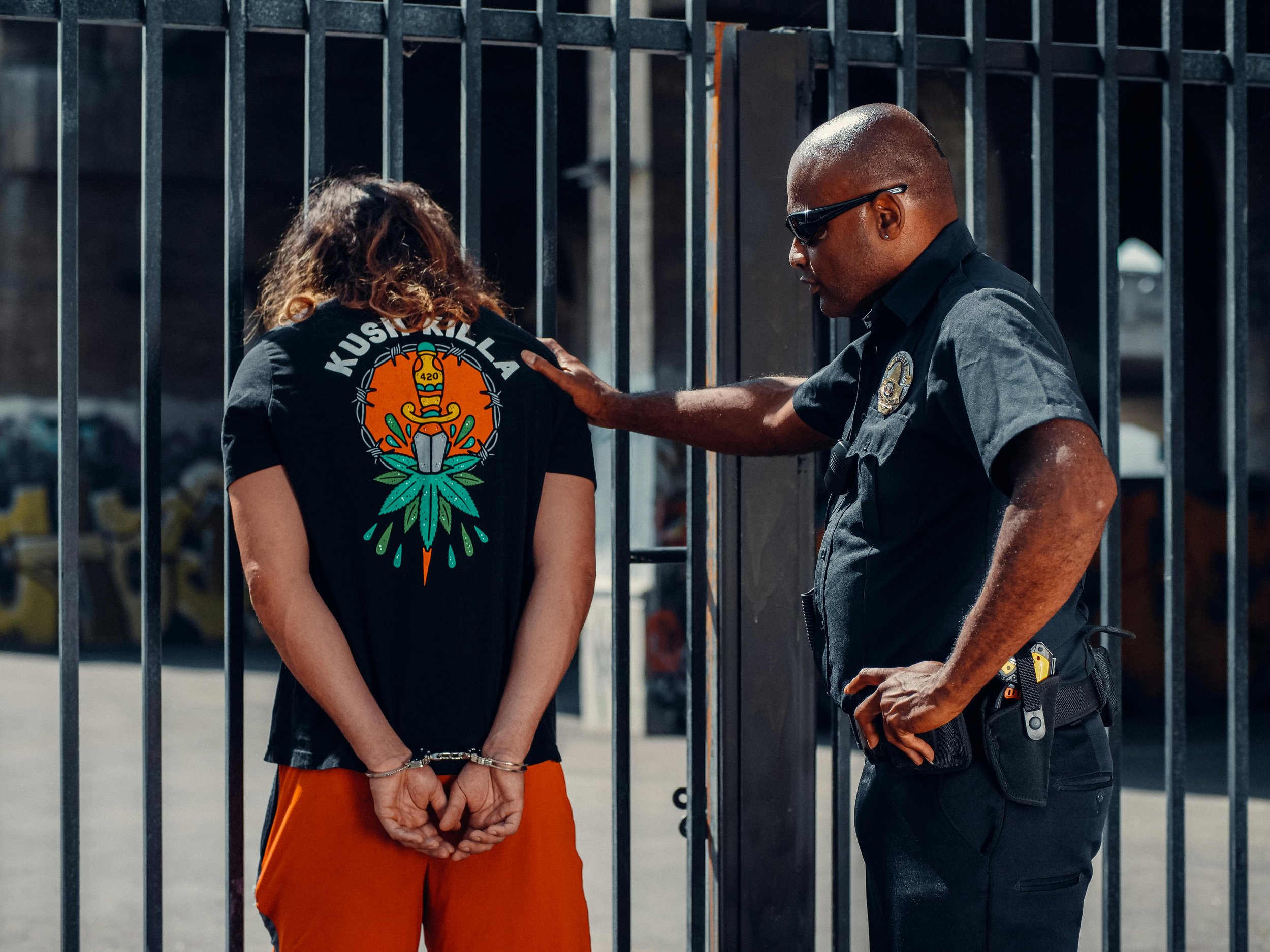When Are Miranda Rights Not Required?
Being arrested is a terrifying and confusing experience, one we hope you never have. During an arrest, most people expect to have their Miranda rights either read or recited to them while being taken into custody.
We can point directly at police procedural dramas on television for many of the misconceptions people have about their Miranda rights. Contrary to popular belief, police aren’t required to Mirandize you unless specific criteria are met.
Today, we’re looking at the results of the 2022 Supreme Court ruling in Vega v. Tekoh. You’ll be surprised to see what has and hasn’t changed in your rights during police encounters.
What are your Miranda Rights?
The Miranda warning is intended to inform people in police custody that they have certain rights provided by the 5th and 6th Amendments to the Constitution of the United States. They outline your right not to incriminate yourself through testimony, coerced or voluntary, and your right to legal representation. These rights apply to American citizens and non-citizens alike.
Your Miranda rights are:
You have the right to remain silent.
Anything you say or do in custody can be used against you in court.
You have the right to an attorney.
You have the right to have an attorney present during interrogation.
If you cannot afford an attorney, the court will provide one for you.
While there’s a standard verbiage you’ve likely heard in popular media, states must use the same language in communicating these rights. During certain instances, police must remind you that you have these rights so that what you say is admissible in a future court proceeding.
Why is it required to read your Miranda Rights in most instances?
Police must inform a person who has been detained or is in custody of their rights before interrogation. If the police ask you about a crime and you’re under arrest, they must Mirandize you before they begin. Anytime they place you in custody, they can’t legally question you unless you confirm that you’re aware of your rights.
Later, if a case relies on testimony given under coercion or without police informing you of your rights, that testimony can be thrown out as “fruit of the poisonous tree” via a Motion to Suppress
Why is it important for you to know your Miranda rights?
When a crime is under investigation, police are motivated to find out the details of the crime quickly. Early in a case, interrogating involved parties is essential for police to discover the facts. However, anyone brought in for questioning must be informed that they have a right not to speak and have an attorney present during that questioning.
These rights are meant to protect you from being coerced or forced to sign a confession that isn’t accurate. Sadly, the history of the justice system is full of examples where innocent people were convicted of crimes based on false confessions. Most of the time, these were made without full knowledge of their rights.
When are Miranda Rights not required?
Not every police interaction requires you to be Mirandized. Police aren’t obligated to inform you of your rights in the following circumstances.
If no arrest is present, Miranda rights are not required
Unless you’ve been arrested, police aren’t required to read you your rights. You still have them, as provided by the 5th Amendment, but you won't have them read to you.
Loitering does not require Miranda rights to be read
Police frequently question individuals who they suspect are loitering. They have the right to ask you any necessary questions, but if you aren’t under arrest, they don’t have to Mirandize you.
While they won’t read you your rights, you still have the right to refuse to answer. However, your refusal may cause the officers to find another reason to remove you from the premises, often through an arrest.
Roadside stops don’t require Miranda rights being present
Routine traffic stops don’t require police officers to read you your rights. When you sign the forms to get a driver’s license, you agree to provide them to the police upon request. If they suspect you of driving under the influence, they can ask you to comply with their directions.
If national safety is threatened, then Miranda rights are not needed
National and public safety are two cases where your Miranda rights aren’t legally required. If police believe that you may have life-saving information, they may interrogate you without reading your rights. Called the “public safety exception,” information obtained can be used in court later.
However, police are restricted to only asking questions that could help mitigate a threat. They’re allowed to ask questions regarding danger to the public, a victim, the suspect, or the arresting officer.
Whenever you are not in custody, police do not have to say Miranda rights
Unless you’ve been placed under arrest or into other types of custody, police don’t have to tell you your rights. Some states have laws requiring you to identify yourself, and all states require you to produce your ID during traffic stops. Beyond that, you don’t have to answer questions from law enforcement.
Also, bear in mind that anything you say to an officer before an arrest can be used in court.
What happens if you aren't read your Miranda rights?
If you’re placed under arrest and questioned but not read your rights, whatever you say can’t be used in court.
Vega v. Tekoh is a case where Tekoh sued his arresting officer for not reading him his rights, claiming that his civil rights were violated. In the original case, the judge admitted a confession that Tekoh claimed was provided under pressure from Vega. That confession was used to try to convict Tekoh in the original case, but the jury found him not guilty.
Tekoh sued Vega for violating his civil rights by not Mirandizing him. The case went to the Supreme Court, which ruled in Vega’s favor. They stated that reading someone their rights before questioning is necessary but not a right in and of itself.
Any statement you make cannot be used against you
Nothing you say can be used in court if law enforcement questions you while in custody but doesn’t read you your rights. However, as long as police can prove that they would’ve found the evidence without your testimony, any tangible evidence discovered may still be used in a criminal case against you.
A lawyer needs to be contacted as soon as possible
If you’ve been arrested and questioned without being read your rights, contact an attorney as soon as possible. Convictions from these cases are unfortunately common, and anything you disclose during interrogation is inadmissible in court. A criminal defense attorney can help you navigate the procedural gray areas to protect you from wrongful convictions.
Busciglio Sheridan & Schoeb are here to inform you about your Miranda rights!
Busciglio Sheridan & Schoeb are here to help protect your rights. If you feel that your 5th or 6th Amendment rights were violated during an arrest, contact us immediately. We’ll make sure that you’re protected from misconduct and support you in court. Don’t let sloppy police procedures ruin your life. Contact us today!


